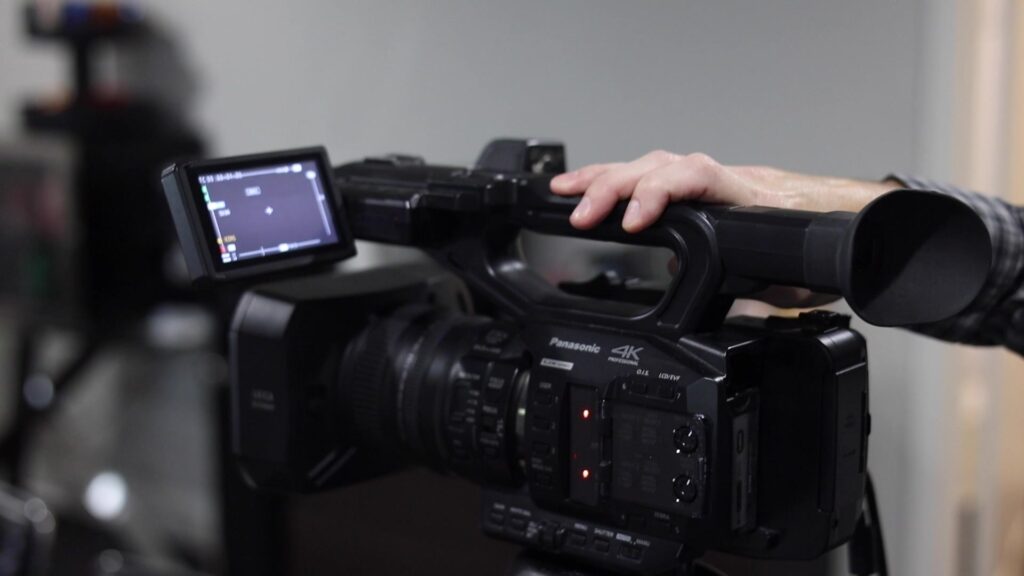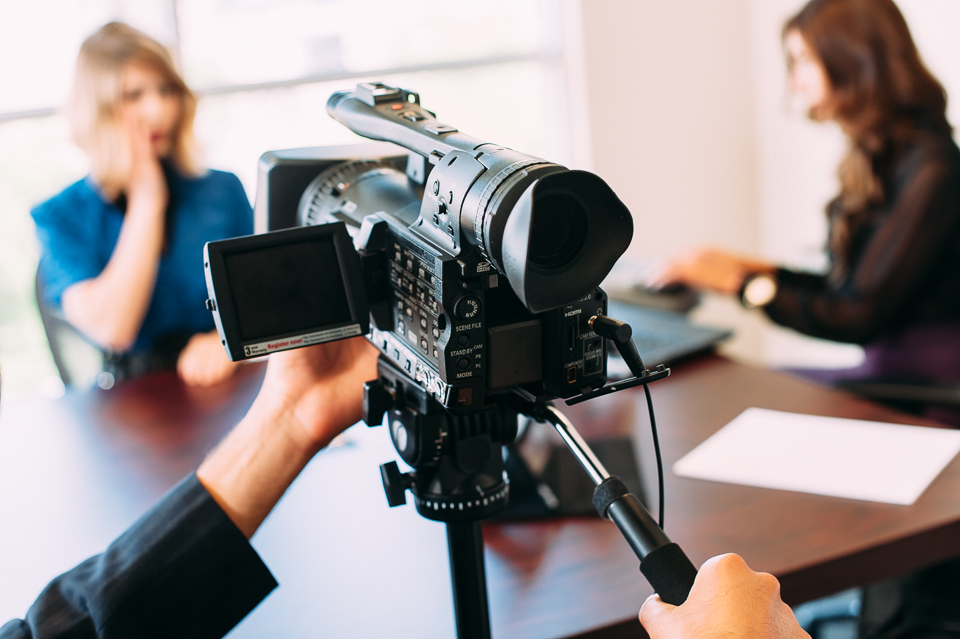The Significance of Legal Video Clip Depositions in Modern Legal Services: What You Should Know
Legal video clip depositions have come to be crucial in today's lawful landscape. They provide a multidimensional view of witness testimonies that typical records merely can not match. By recording both non-verbal and spoken communication, these depositions enhance the general understanding of a witness's reputation. The effectiveness of video depositions pivots on various variables, including conformity with lawful criteria and ideal methods. Exploring these elements reveals their true significance in contemporary legal solutions
What Are Lawful Video Clip Depositions?
Legal video clip depositions serve as an important tool in the lawsuits process. They entail recording witness testaments in a video clip layout, capturing both spoken and non-verbal interaction. This method permits lawyers to record the demeanor, expressions, and reactions of witnesses, offering a richer context for the statement. Usually carried out in a controlled environment, these depositions are led by lawyers who ask questions while a stenotype reporter documents the discussion. The resulting video clip can be essential for trial preparation, as it allows lawyers to examine the integrity of witnesses and fine-tune their strategies. In addition, legal video depositions can be made use of in different legal contexts, ranging from civil disagreements to criminal situations. The auditory and visual elements of video depositions enhance the discussion of evidence, making it a necessary element in the modern-day lawful landscape. Generally, they add considerably to the performance and efficiency of legal proceedings.

Benefits of Video Clip Depositions Over Traditional Approaches
Video clip depositions supply many benefits compared to traditional approaches of taking witness statements. One considerable advantage is the capability to catch both visual and audio elements, giving a more comprehensive record of the witness's statements. This twin format enhances clearness and allows legal experts to reference specific nuances during trial prep work. Furthermore, video clip depositions promote remote participation, making it easier for witnesses that may be not available for in-person looks due to geographical restrictions or wellness issues.Moreover, video depositions can speed up the total deposition process, lowering the moment and prices associated with traveling and logistics. They also improve availability, as taped depositions can be quickly shared amongst lawful groups and referenced any time. This convenience adds to better case management and prep work. On the whole, video clip depositions represent a modern, efficient technique to collecting witness statements, straightening with the progressing demands of the lawful career.
The Role of Body Movement and Tone in Testimonies

In legal video depositions, body language and tone play vital roles in conveying a witness's reputation and trustworthiness. Nonverbal cues can offer understandings into a witness's psychological state, influencing just how their statement is viewed. Comprehending the impact of these aspects is crucial for jurors and lawyers alike when evaluating the integrity of a testament.
Nonverbal Interaction Insights
While spoken communication is frequently highlighted in legal testimonies, nonverbal cues such as body language and tone play a necessary role in conveying reputation and feeling. Observers of depositions might keep in mind that a witness's position, gestures, and faces can significantly influence perceptions of dependability. Regular eye get in touch with may signify self-confidence, while staying clear of look might recommend deceit or discomfort. In a similar way, the tone of voice-- its quantity, pitch, and pace-- can impart sensations of sincerity or unpredictability. Lawyers have to be in harmony with these nonverbal signals, as they frequently supply important context that complements spoken words. Comprehending these subtleties can improve the effectiveness of depositions and influence the result of legal proceedings.
Psychological Tone Impact
The emotional tone communicated during legal statements greatly affects how a witness is viewed. Body language, vocal inflections, and faces play crucial roles fit the narrative of a testament. A witness exhibiting confidence through constant eye call and a calm tone can instill a sense of integrity and involvement. On the other hand, indicators of anxiety, such as fidgeting or a shaky voice, might lead to uncertainty concerning their account. The nuances of psychological expression can affect the interpretation of realities, making it vital for legal experts to acknowledge these signs. In video depositions, the auditory and visual parts incorporate, stressing the relevance of emotional tone in conveying genuineness and truthfulness within the legal process.
Reputation and Dependability
A crucial consider developing reputation and reliability during statements lies in the witness's body movement and intonation. Viewers commonly rely upon non-verbal hints-- such as eye get in touch with, stance, and motions-- to examine a witness's sincerity. A witness that maintains eye call and shows open body language might be viewed as even more straightforward and dependable than one that avoids eye contact or shows up closed off. Furthermore, tone of voice plays an essential role; a steady, calm tone can enhance the integrity of the statement, while variations in pitch or quantity might raise questions. Eventually, the mix of body movement and vocal tone greatly affects exactly how a witness's declarations are received and interpreted in a legal context.
Ideal Practices for Performing Video Clip Depositions
Performing video clip depositions calls for cautious planning and execution to guarantee a clear and reliable discussion of statement. It is essential to choose a silent, well-lit location to reduce disturbances and secure ideal video high quality. The tools needs to be tested ahead of time, including electronic cameras, microphones, and lights, to stay clear of technological issues throughout the deposition.Next, parties included must assess the format and procedures ahead of time, ensuring that everyone recognizes their roles. The deponent ought to be oriented on the procedure, including just how to respond clearly and concisely.Additionally, keeping a professional behavior throughout the session is crucial. This consists of avoiding from talking over each other and validating that all inquiries are routed suitably. Ultimately, it is essential to record the deposition in a format that permits for simple playback and testimonial, preserving the honesty of the testimony for future use.
Legal Factors To Consider and Conformity Issues
Just how do lawful considerations and conformity problems affect the effectiveness of video depositions? Legal experts have to browse a complicated landscape of laws, making certain that video clip depositions abide by administrative guidelines and criteria. Conformity with regulations worrying personal privacy, authorization, and taping methods is crucial. Acquiring explicit permission from all celebrations entailed is required to stay clear of lawful repercussions.Additionally, the admissibility of video clip proof in court can pivot on compliance with step-by-step needs. Making sure that the equipment utilized satisfies technical requirements is also essential, as low quality can threaten the deposition's reliability.Moreover, lawyers must be aware of any kind of certain state legislations that govern video depositions, as these can differ considerably. Failure to deal with these considerations can not only jeopardize the integrity of the deposition yet also impact the general instance approach, inevitably influencing the customer's lawful end results.
How Video Depositions Impact Jury Understanding
While video clip depositions can act as powerful tools in lawful process, their impact on jury understanding Look At This is considerable. The acoustic and aesthetic aspects of video clip recordings offer jurors with a much more comprehensive understanding of witness attitude, trustworthiness, and psychological reactions. This multimedia technique can enhance the jurors' capacity to evaluate the dependability of testimony compared to conventional text-based transcripts.Moreover, video depositions enable jurors to observe body movement, intonation, and faces, check it out every one of which can affect their interpretation of the witness's declarations. The visibility of a witness on display can humanize them, promoting compassion and connection, which may persuade jurors' viewpoints. Conversely, a witness that shows up incredibly elusive or unreliable on video clip may lead to negative assumptions that affect a court's decision. Inevitably, the vibrant nature of video depositions plays an important duty in forming exactly how jurors interpret proof and reach their verdicts.
The Future of Video Depositions in Legal Method
As developments in technology remain to improve the legal landscape, the future of video clip depositions is poised for considerable development. Technologies such as expert system, virtual fact, and improved video clip conferencing tools are expected to streamline the deposition process and improve availability. Legal experts might utilize AI-driven analytics to analyze witness integrity and instance stamina more effectively.Moreover, the assimilation of virtual truth could permit courts to experience immersive simulations of depositions, supplying deeper context and understanding. Additionally, the trend towards remote depositions is most likely to linger, using higher adaptability for attorneys and clients alike.As remote job ends up being increasingly normalized, video clip depositions will likely come to be standard technique, minimizing expenses and time restrictions connected with standard approaches. On the whole, these technical innovations guarantee to boost the efficiency, effectiveness, and accessibility of video clip depositions in legal technique, eventually changing just how lawful specialists prepare for test.
Regularly Asked Concerns
Just How Much Do Legal Video Clip Depositions Commonly Cost?

Can Video Depositions Be Utilized in Any Sort Of Case?
Video depositions can be used in different types of cases, including civil, criminal, and family law. Their adaptability permits lawyers to present witness testimonies properly, adjusting to the certain needs of various legal circumstances.
What Equipment Is Required for a Video Clip Deposition?
To conduct a video clip deposition, necessary equipment includes a top notch cam, microphone, lighting, and a reliable recording tool. Furthermore, a computer system with editing software application may be required for post-production and formatting the last video.
Exactly how Long Does a Regular Video Clip Deposition Last?
A typical video deposition lasts in between two to four hours, depending on the intricacy of the case and the number of concerns postured. Extensive sessions may occur, however breaks are normally integrated for participant comfort.

Are Video Clip Depositions Admissible in Court?
Video depositions are typically admissible in court, provided they stick to lawful requirements and rules of evidence. Their use enhances clearness and protects witness statement, helping in the judicial process during hearings and trials. Lawful video depositions have ended up being crucial in today's legal landscape. Furthermore, lawful video clip depositions can be utilized in numerous useful site legal contexts, ranging from civil conflicts to criminal situations. In addition, video depositions promote remote engagement, making it much easier for witnesses who might be not available for in-person looks due to geographical restraints or health issues.Moreover, video depositions can speed up the overall deposition process, decreasing the time and prices connected with travel and logistics. Making sure that the devices utilized satisfies technical requirements is additionally crucial, as bad top quality can weaken the deposition's reliability.Moreover, attorneys must be conscious of any type of details state legislations that control video clip depositions, as these can vary considerably. Furthermore, the fad towards remote depositions is likely to continue, using better versatility for attorneys and clients alike.As remote job becomes progressively stabilized, video depositions will likely come to be basic practice, reducing costs and time restrictions linked with conventional techniques.